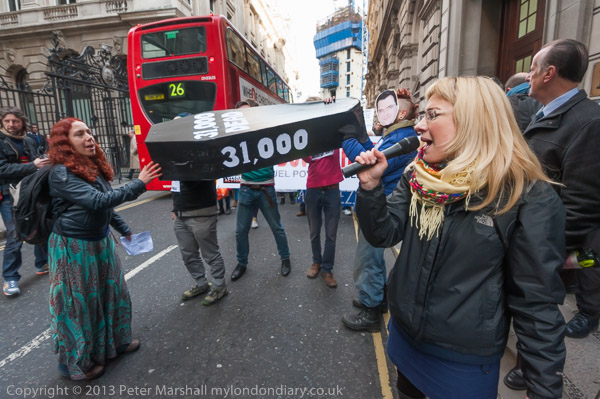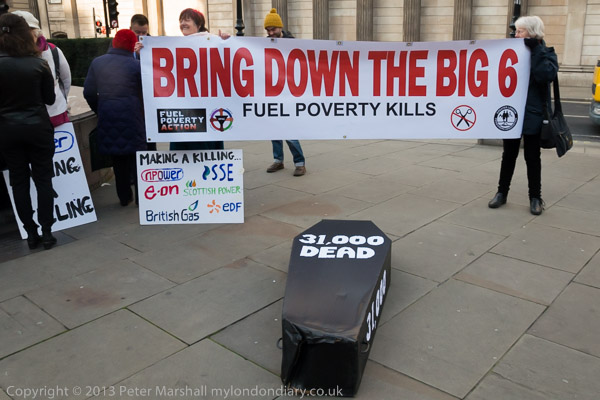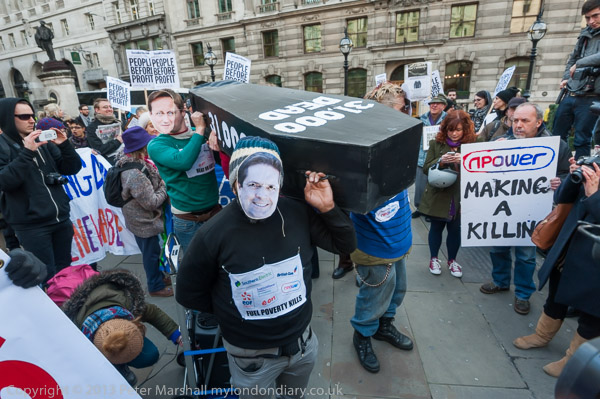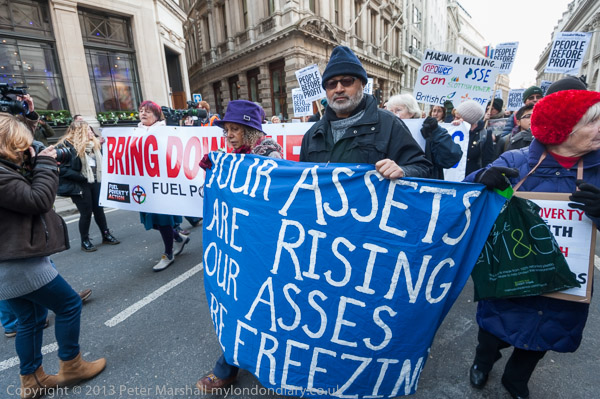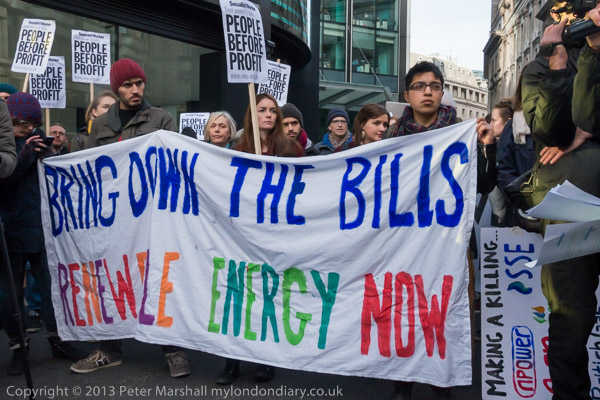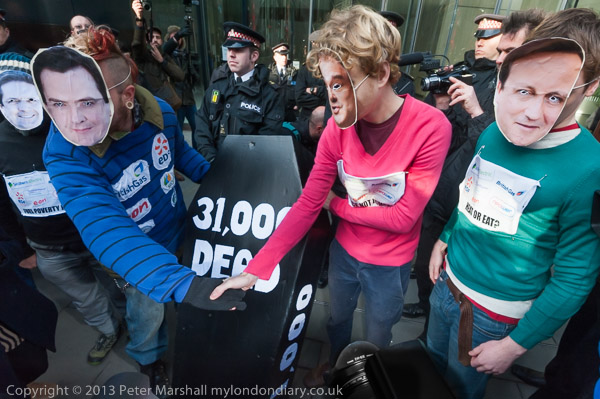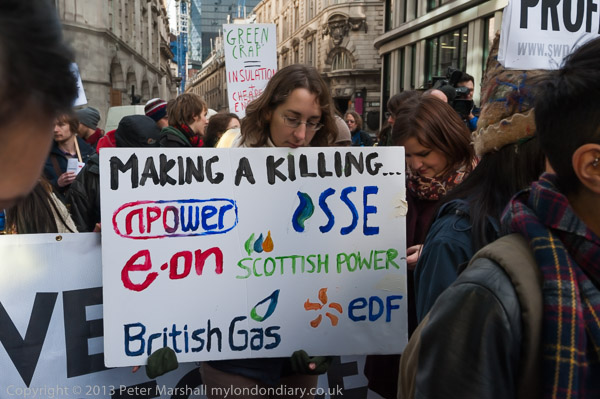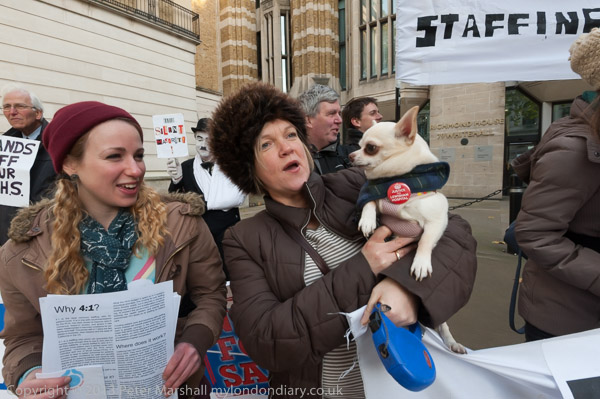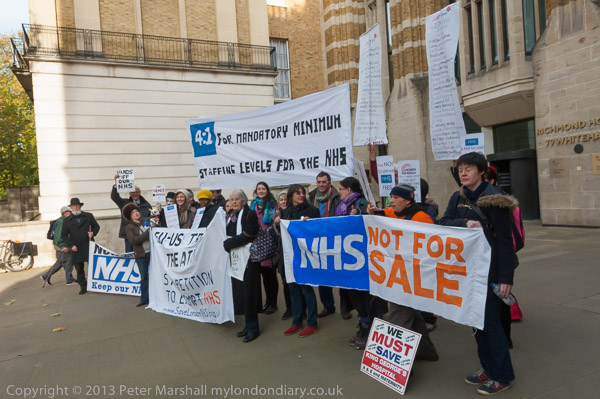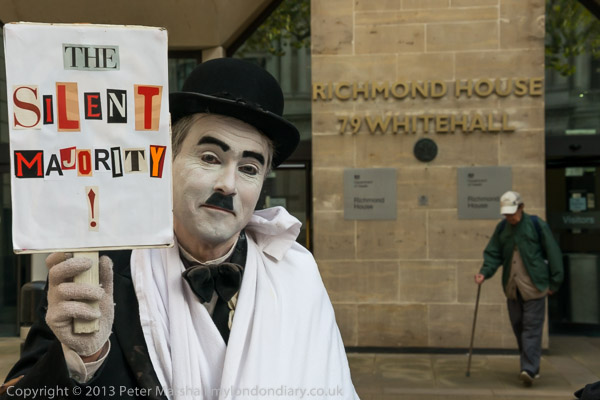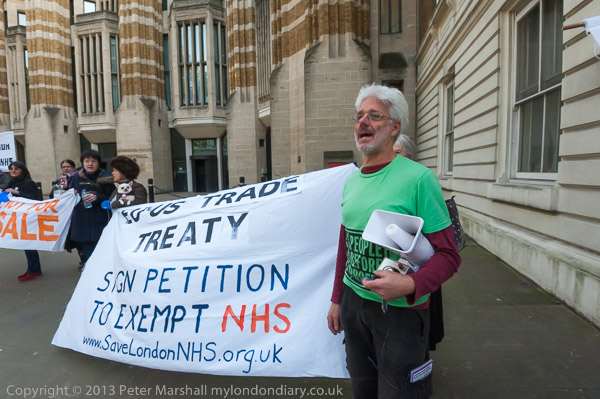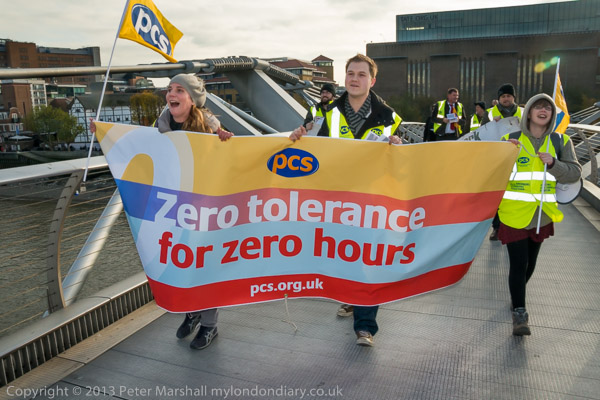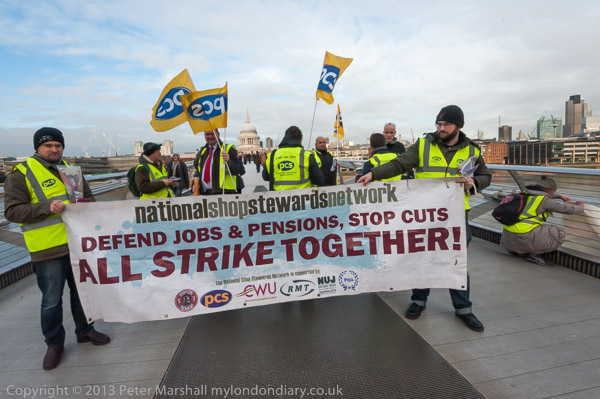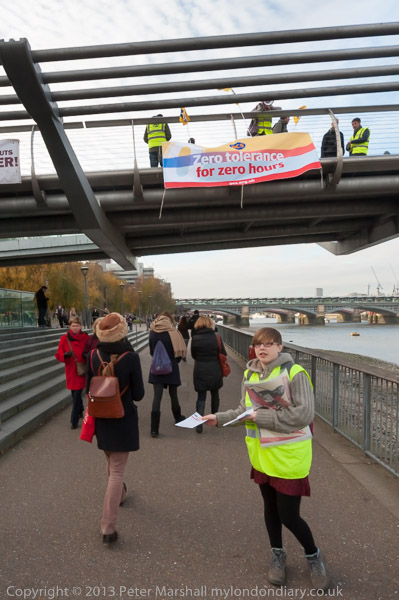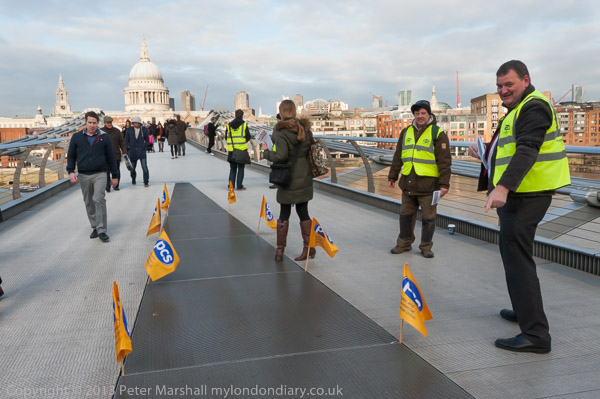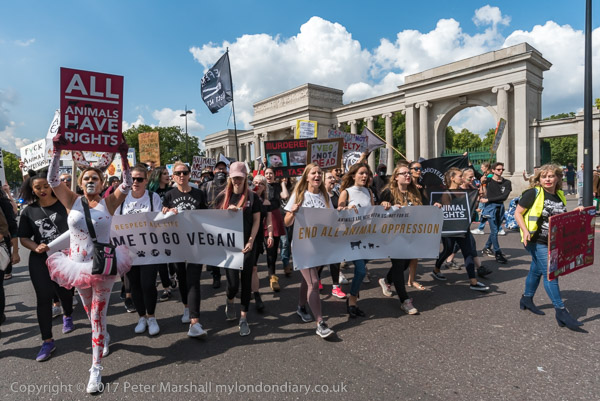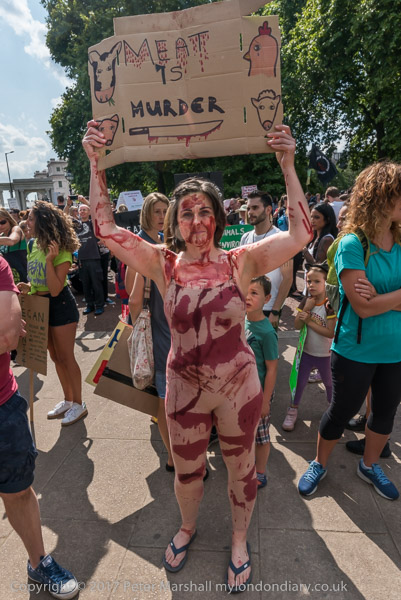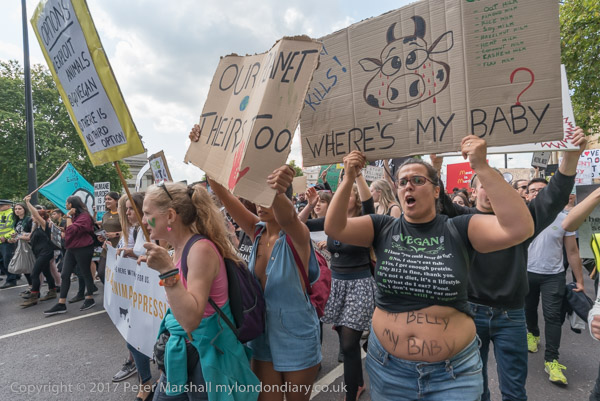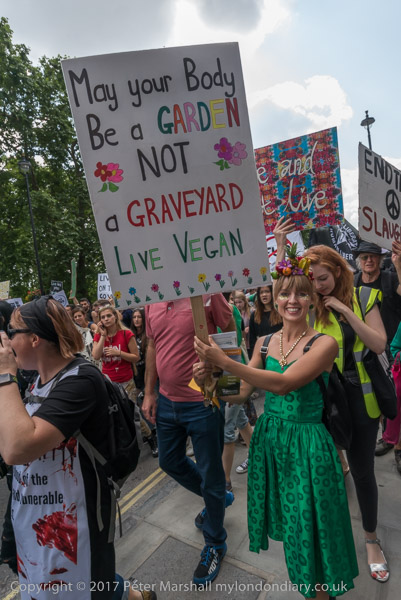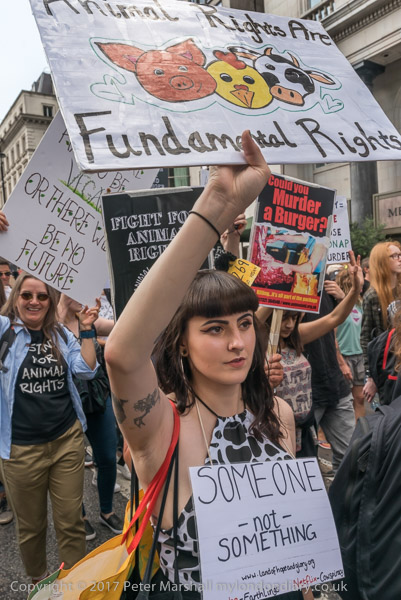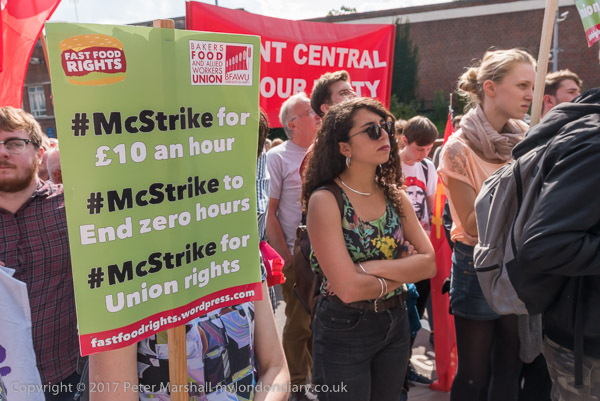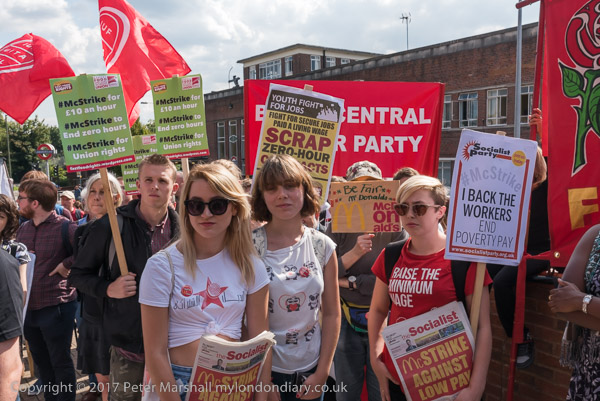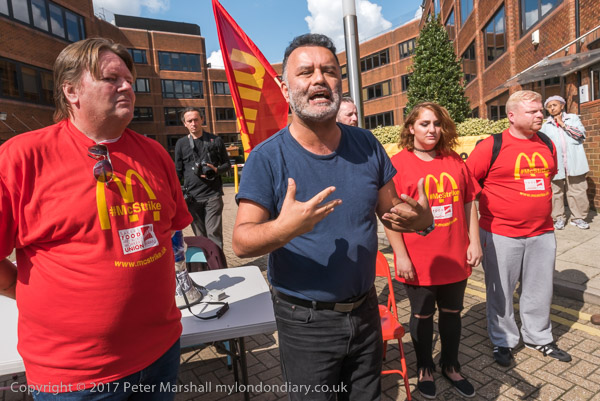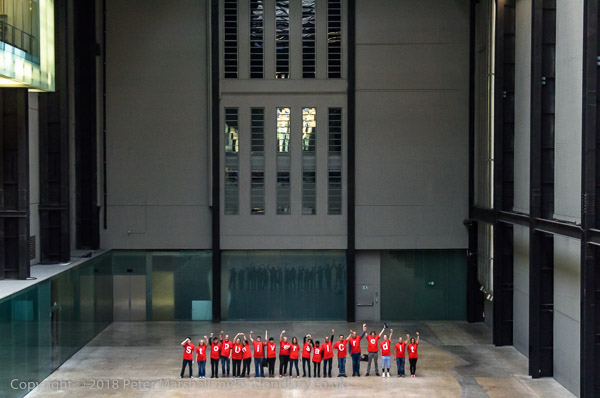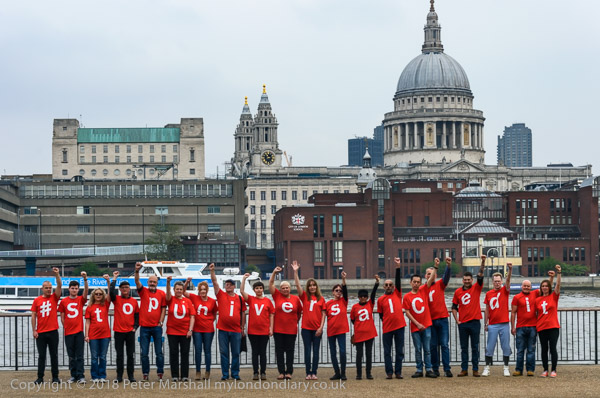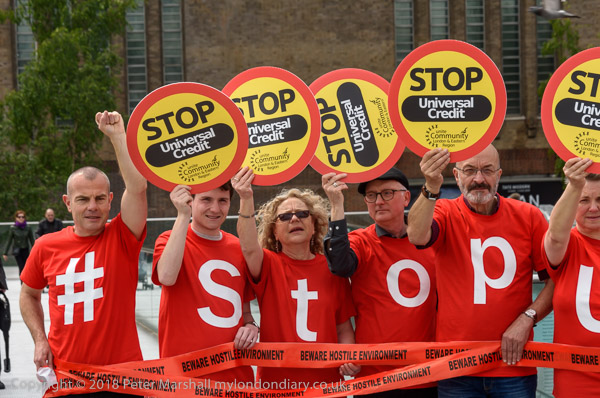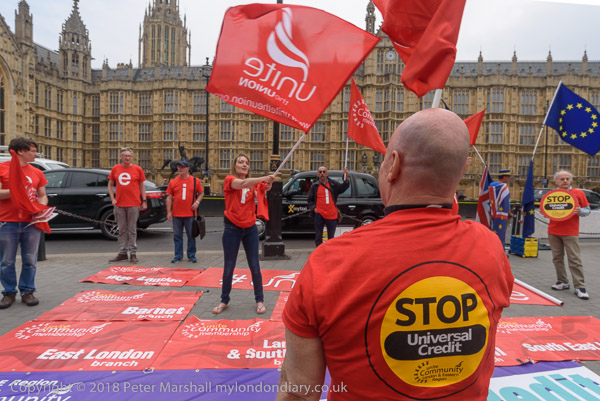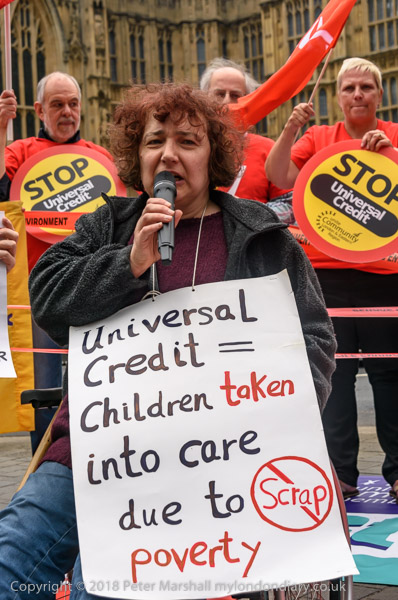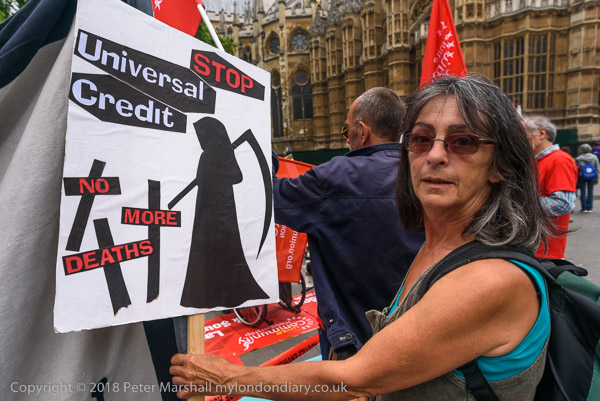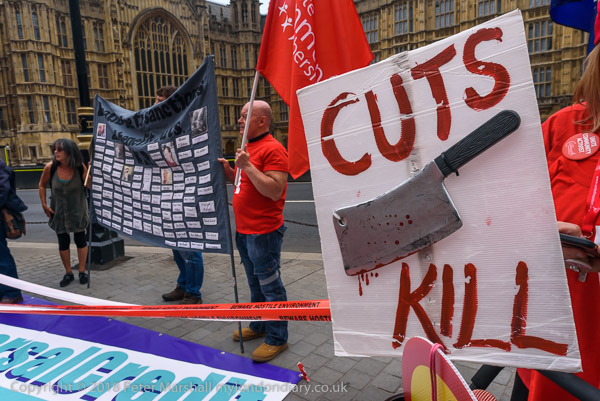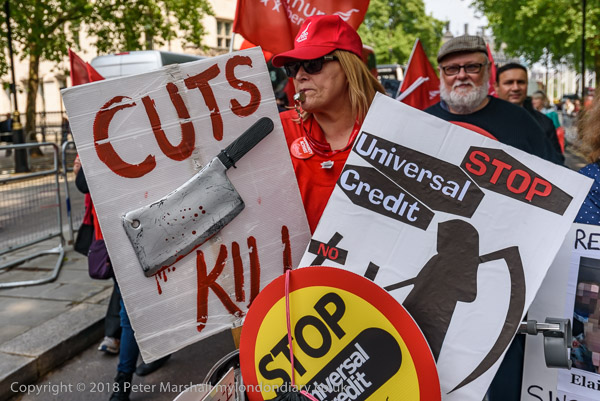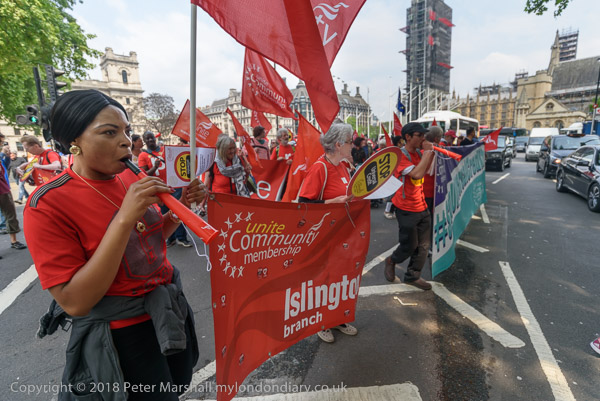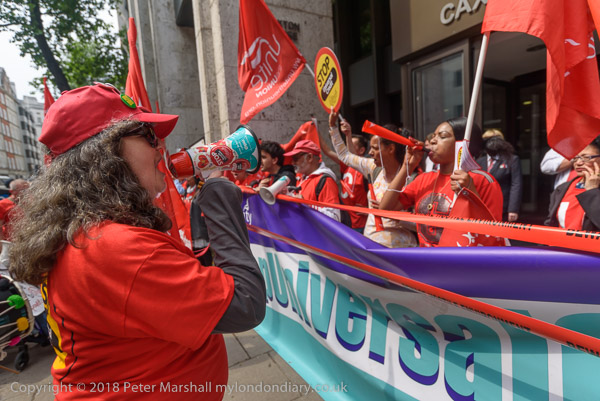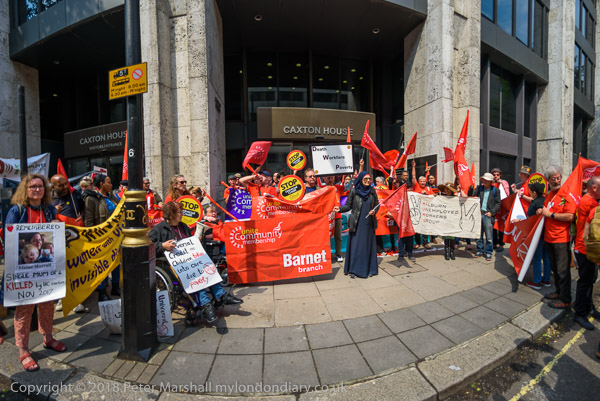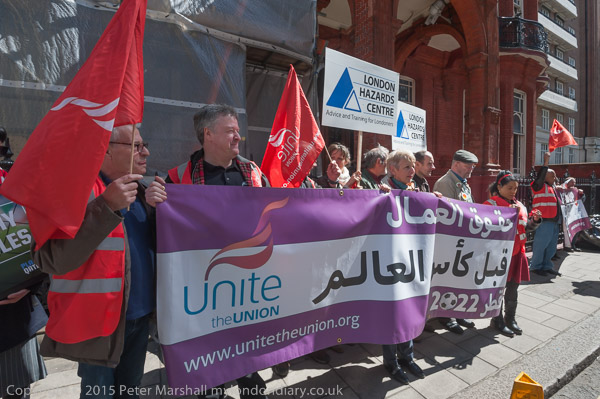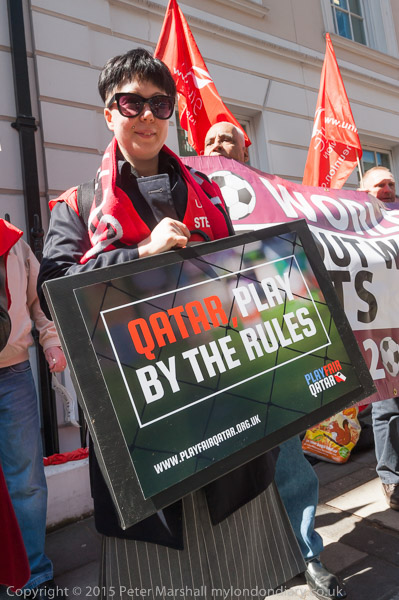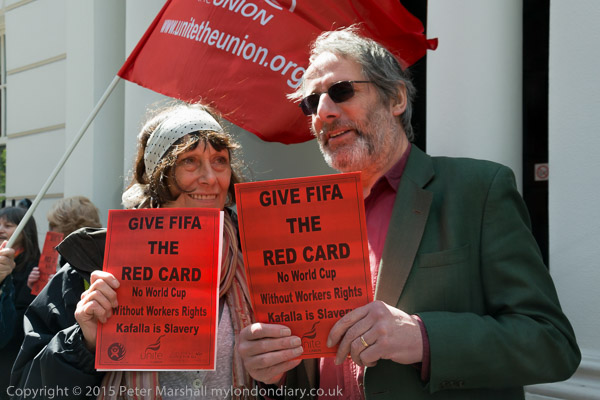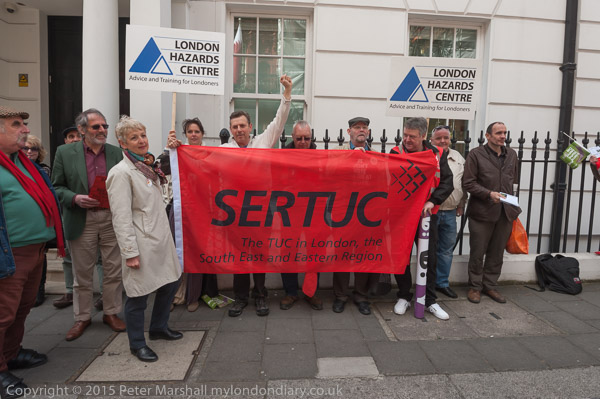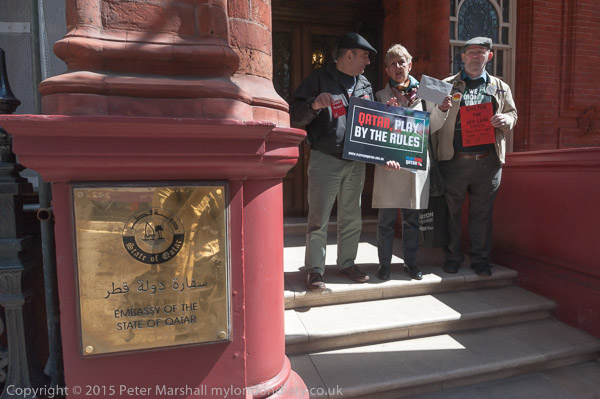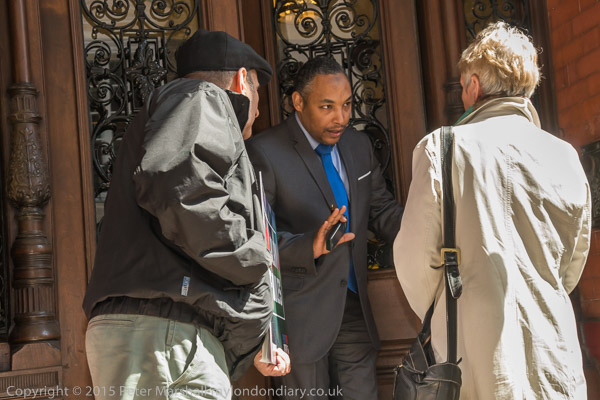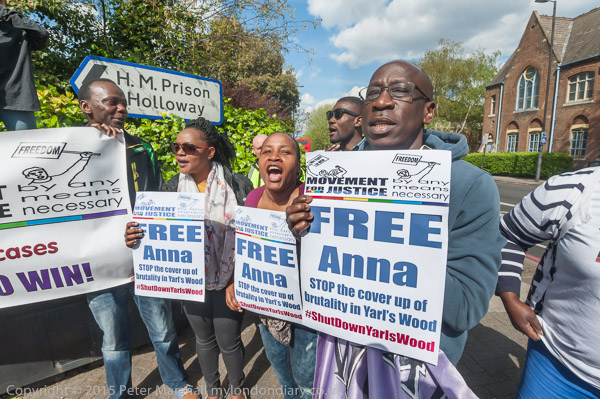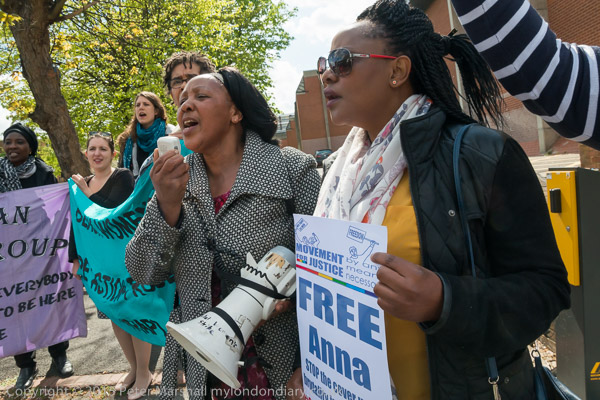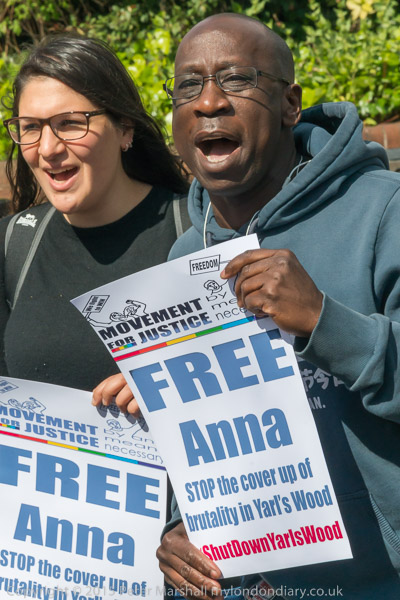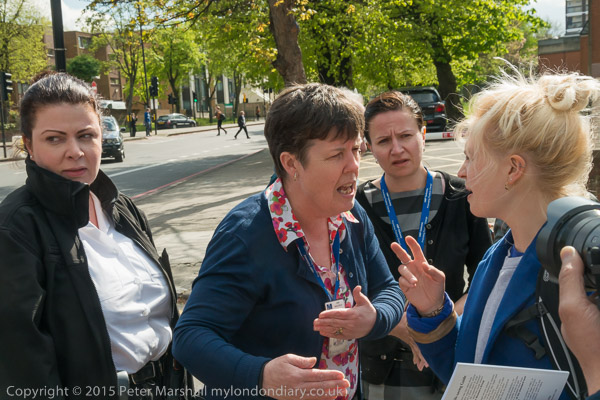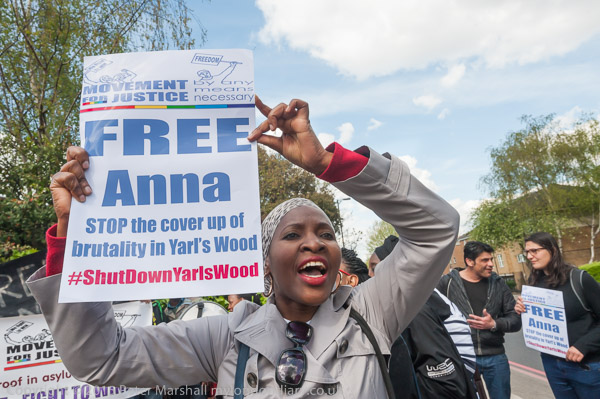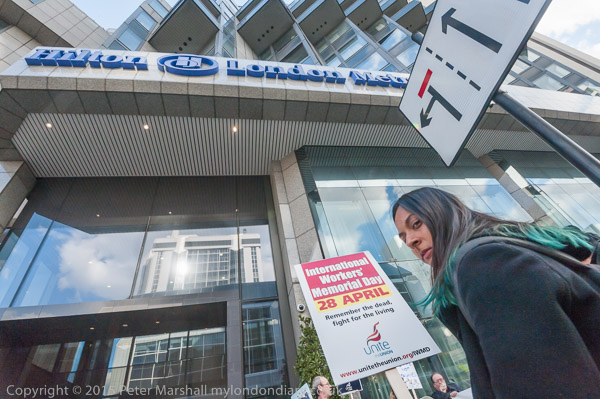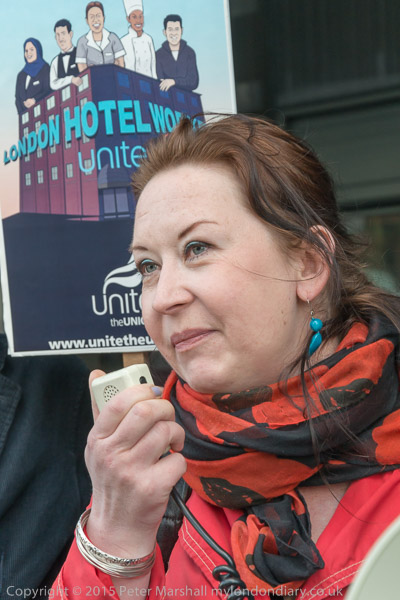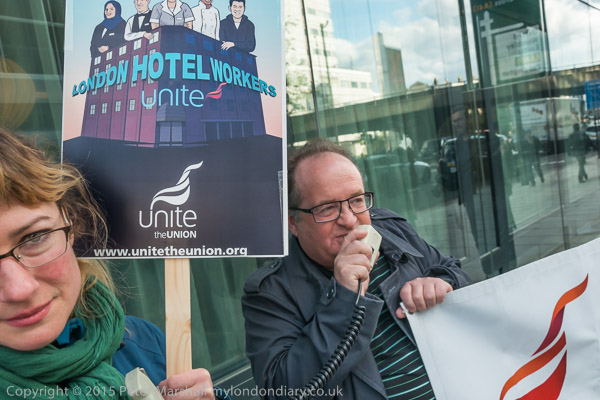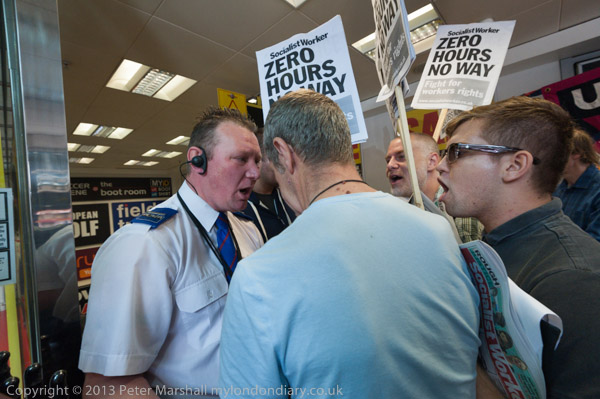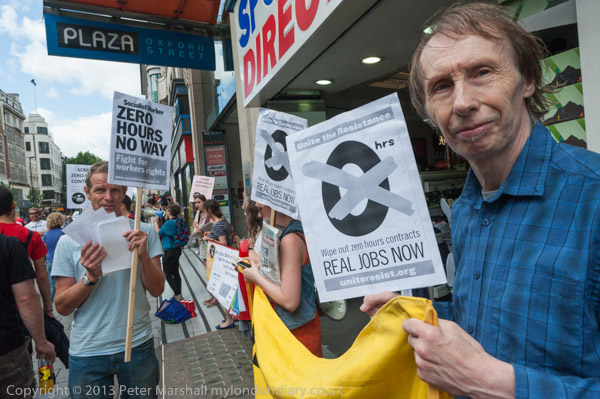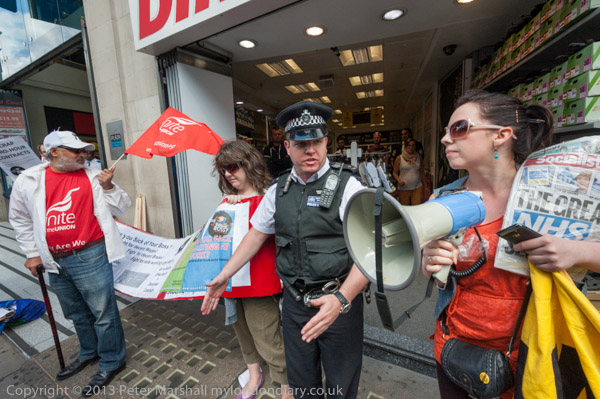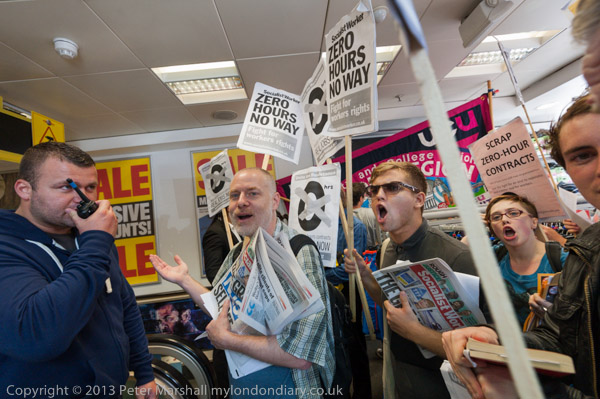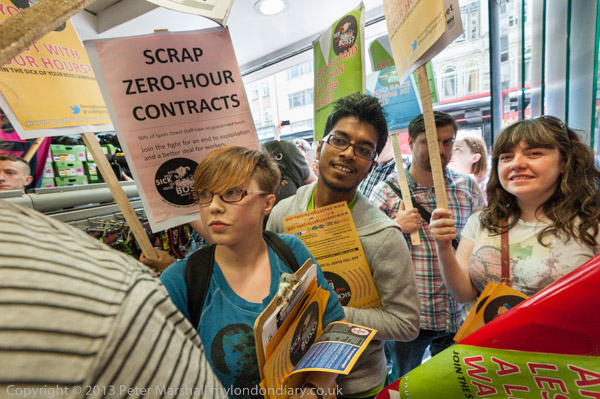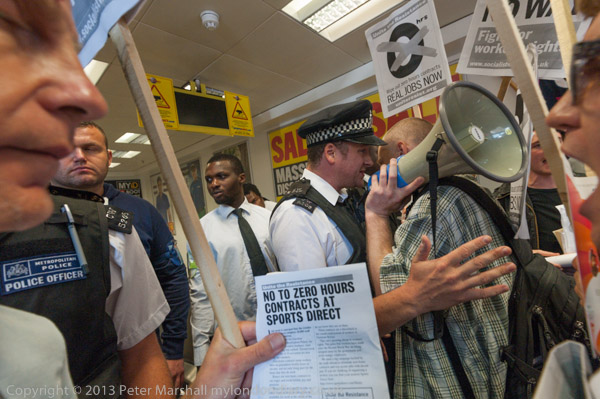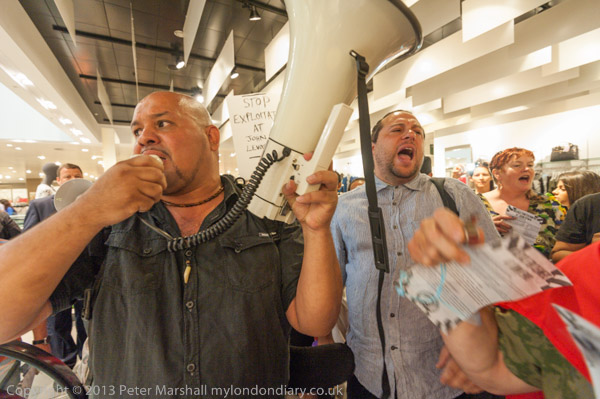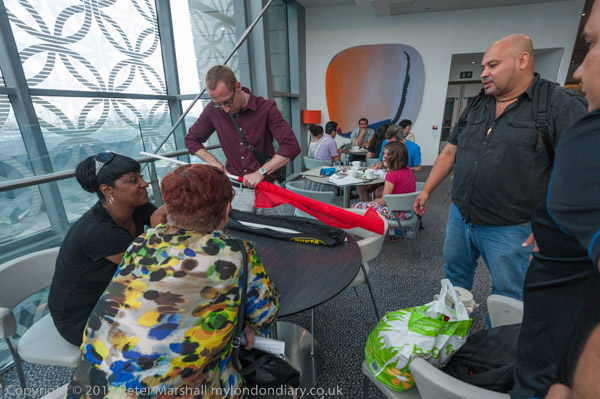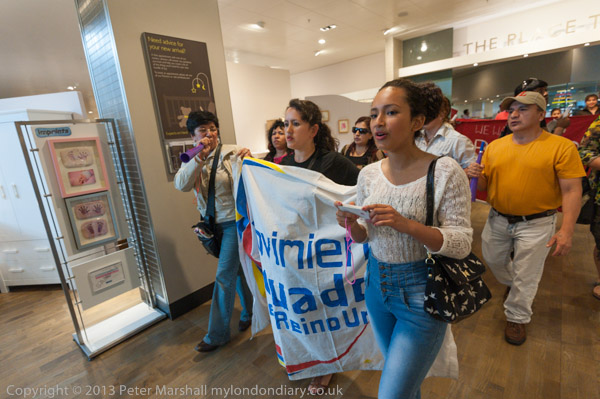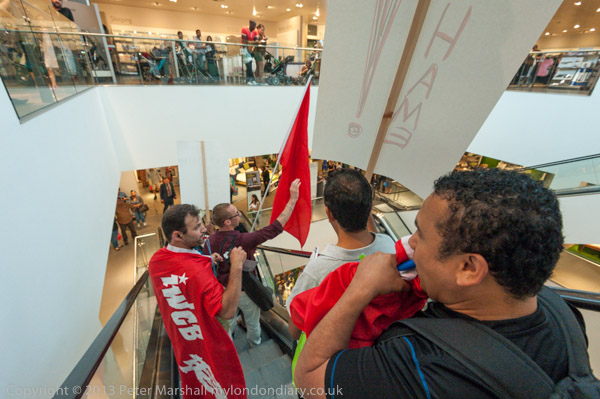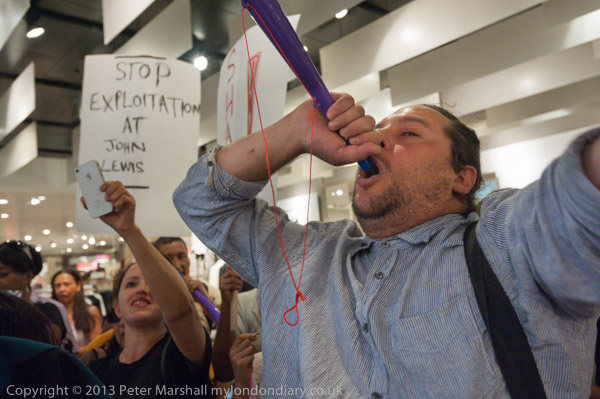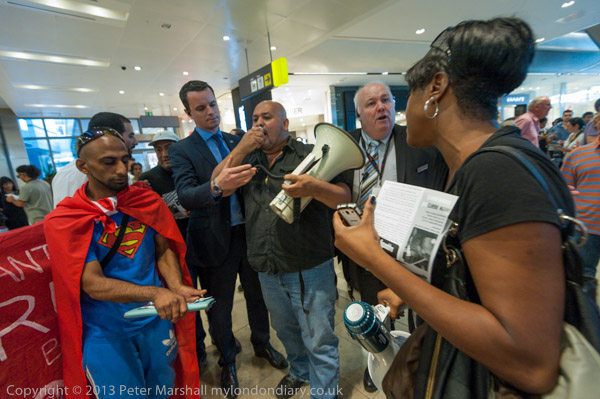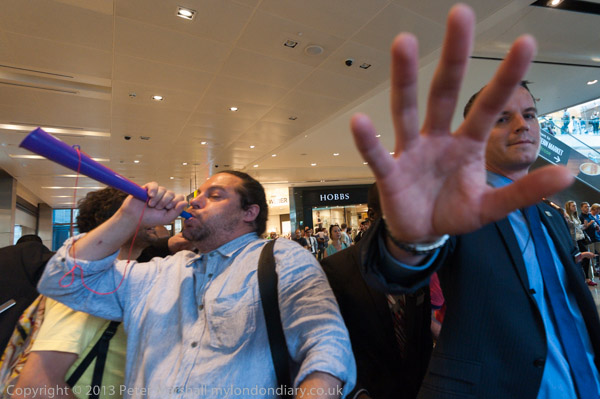Blizzard, Education and Hunger Strike – London hasn’t had a great deal of snow for some years, but when I got off the bus on Wednesday 28th February 2018 close to London University I found myself walking into a blizzard. There was a couple of inches of snow underfoot and the biting wind was driving dense snowflakes into my face making it both difficult to walk and hard to see where I was going.
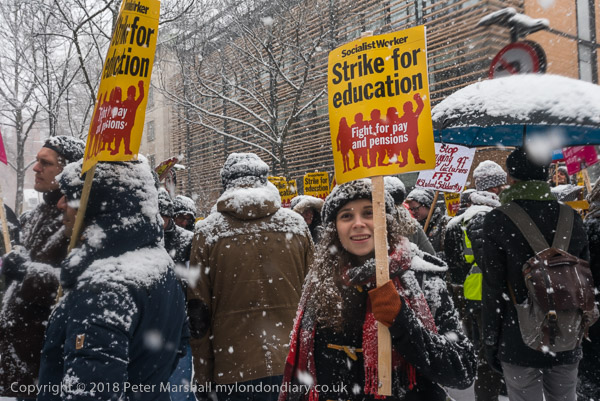
I slipped a few times and almost fell as I walked through Byng Place, only just managing to stop myself and my camera bag falling into the snow, and for the first 15 or 20 minutes after I reached the meeting point for the march it was difficult to take pictures, with snowflakes landing on the lens surface as soon as I took away the cloth I had stuffed against it inside the lens hood and raised the camera to my eye.
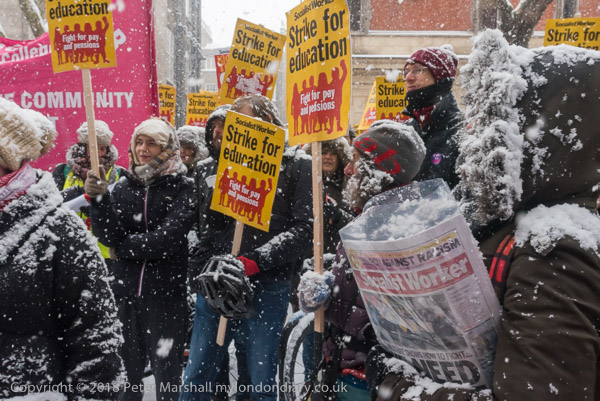
Most of the pictures from the start of the protest were ruined by snow on the lens making some areas soft and diffuse. It might sometimes have been an arty effect but wasn’t what I wanted. Fortunately after a while the snow died down and I was able to work more normally, though the occasional flake kept coming and there were a few thick flurries later on the march.
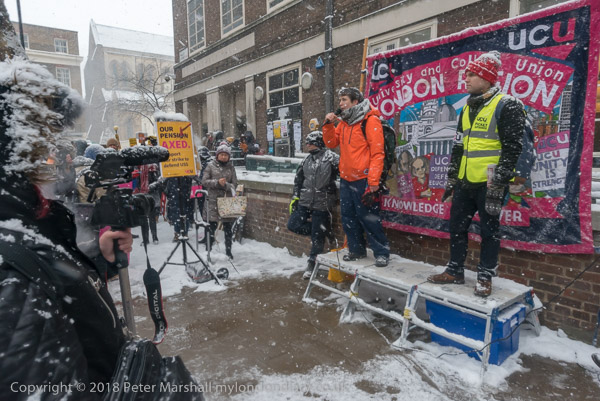
HE and FE march for pensions and jobs
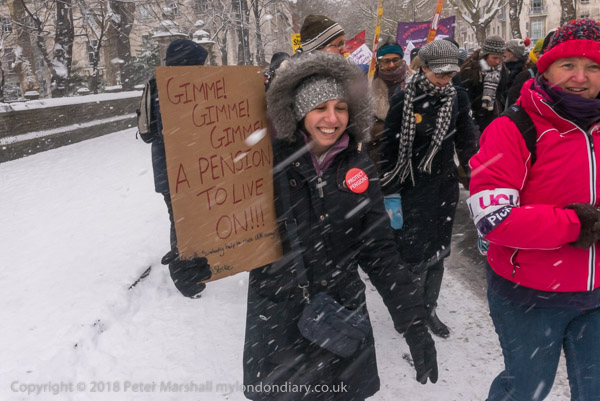
The UCU was on the fifth day of a strike to try and get the universities to talk with them about pay and pensions. On this march to a rally in Methodist Central Hall in Westminster, close to the Houses of Parliament, they were joined by staff from London FE colleges on the first day of a two-day strike over pay and conditions. And plenty of their students had come along to show their support.

Although students are now paying high fees for their university courses, the pay of university teachers has not benefited from this, and has not kept up with inflation. Much more teaching at universities is also being done by graduate students and others on part-time or often zero hours contracts.
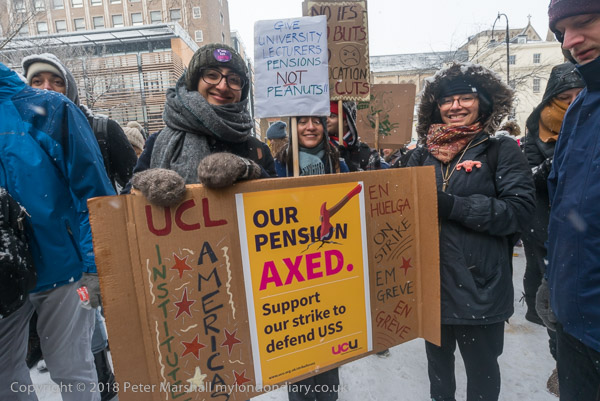
What particularly inflamed the situation was the intention of the universities to end the long-established pension scheme, replacing it with one that would greatly reduce pensions, and their refusal to discuss this with their union, the UCU.
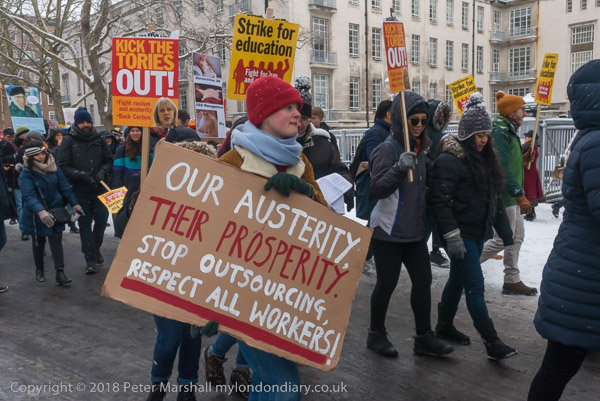
The 5 day strike was supported overwhelmingly by UCU members and had shut down 61 UK universities, despite draconian threats by the management at some of them such as Royal Holloway (RHUL). Pickets had stood in the freezing weather and few people had crossed the picket line.
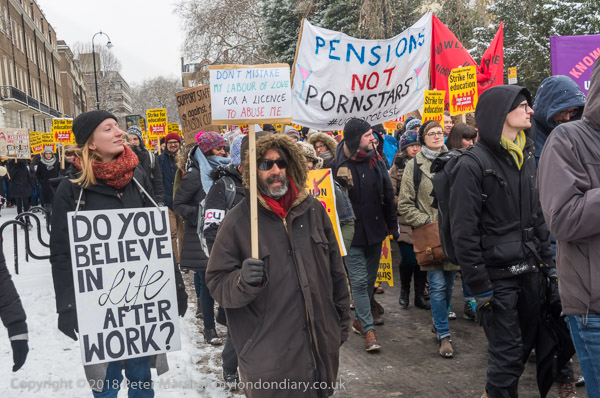
The move away from the pension scheme was largely driven by a small number of universities, particularly the Oxbridge colleges. Many of these are extremely wealthy, some owning huge areas of land including large parts of London and having vast reserves, not least in their wine cellars. A number of college principals had given their support to the union.
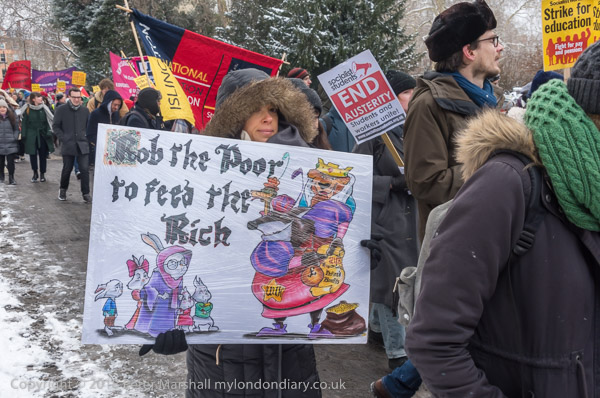
The dispute between the employers and the UCU continued for five years and was only ended in October 2023 when the employer body UUK made an offer of full restoration. This came after 69 days of strikes by the UCU and was a historic victory for UCU members and reversed further cuts made in 2022.
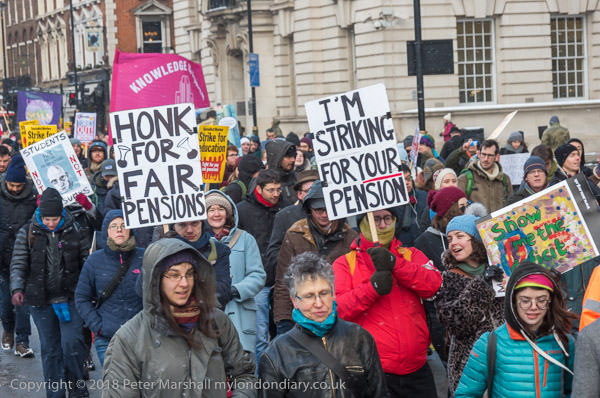
University teachers continue to fight for better pay, more appropriate workloads and job security. FE teachers, marching because of the loss of 15,000 jobs in the sector particularly as adult education has been savaged by austerity, and whose wages had been cut by 21% since 2009, continue to be treated unfairly.
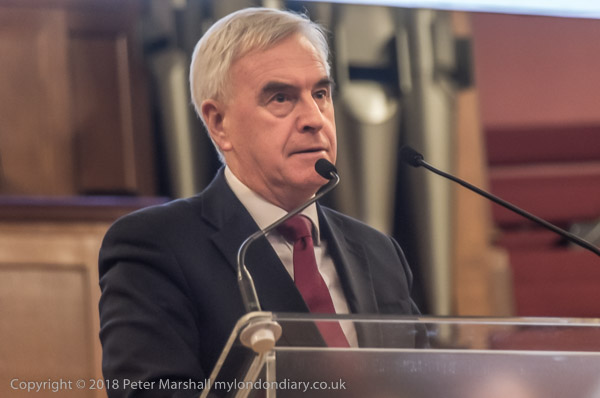
I went into the rally in Central Hall largely to try to get warm after the freezing march, and was fortunate to arrive early enough to get inside – many of the marchers were left outside the the cold where the speakers went outside to speak after making their contributions in the hall.

The event was running late because of the larger than expected number of people on the march, and by the time the main speakers, John McDonnell and Frances O’Grady had performed I’d missed the time for another event I’d planned to cover, the handing in of some NHS petitions at the Department of Health. I But I was pleased to be able to stay longer in the warm.
HE & FE rally for pensions and jobs
HE and FE march for pensions and jobs
Solidarity with Yarl’s Wood hunger strikers – Home Office
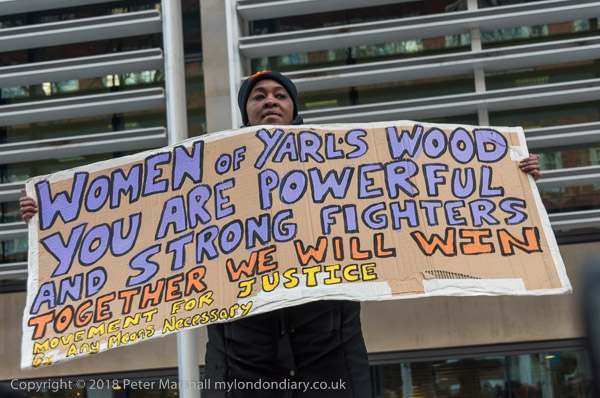
I left the Methodist Central Hall and walked down to the Home Office where an emergency protest was taking place to support the hunger strike and refusal to work by the 120 women and a few men in immigration detention at Yarl’s Wood.
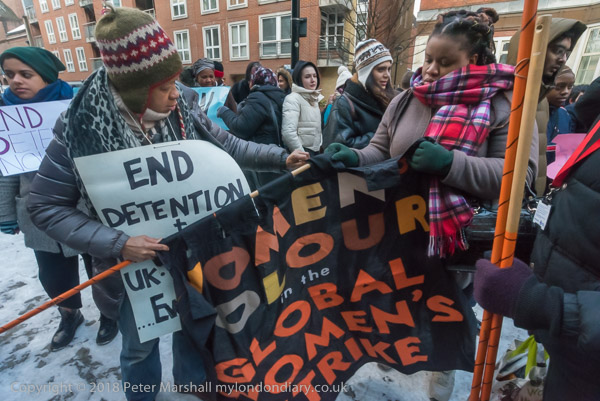
They had begun their action a week earlier to demand the Home Office respect the European Convention of Human Rights and end the separation of families, end indefinite detention with a 28 day maximum detention period, end charter flights which deport people without notice, and end the re-detention of those released from detention.
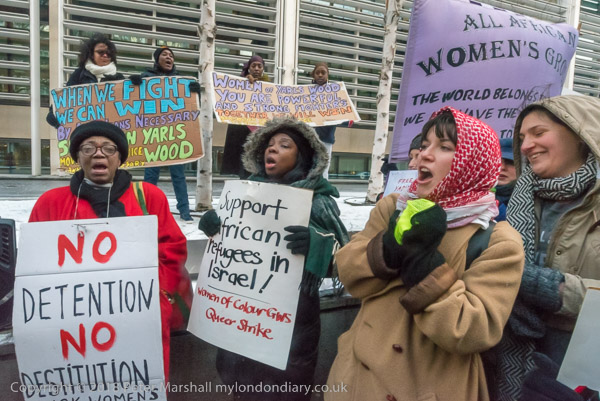
Their statement also called for an amnesty for those who have been in the UK for more than ten years and for the Home Office to stop deporting people before cases and appeals have been completed, as well as making full disclosure of all evidence to immigration tribunals.
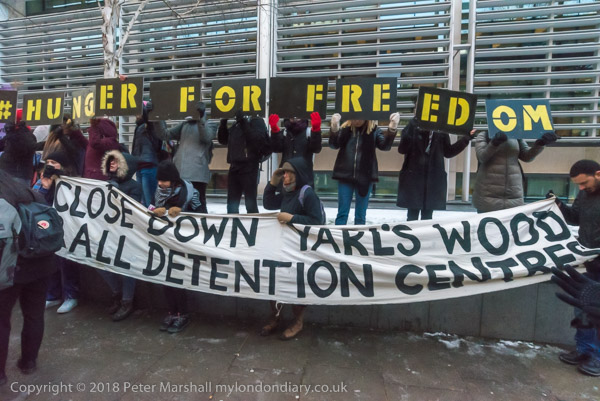
They called for those in detention centres to be treated with dignity and respect and be given proper health care and an end to the detention of highly vulnerable people. They also want an end to employment in detention centres at ‘prison wages’ of £1 an hour.
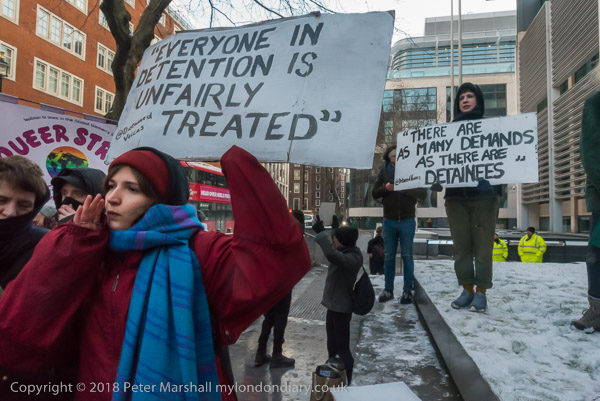
Among the groups supporting the protest were the Movement for Justice, All African Women’s Group, Queer Strike and No Borders. Some of those taking part in the protest had previously served time in detention centres and knew first hand about the shameful way the UK treats them and some spoke at the event and several of those taking part in the hunger strike were able to speak to the protest from inside Yarls Wood by mobile phone.
Solidarity with Yarl’s Wood hunger strikers
Flickr – Facebook – My London Diary – Hull Photos – Lea Valley – Paris
London’s Industrial Heritage – London Photos
All photographs on this page are copyright © Peter Marshall.
Contact me to buy prints or licence to reproduce.
